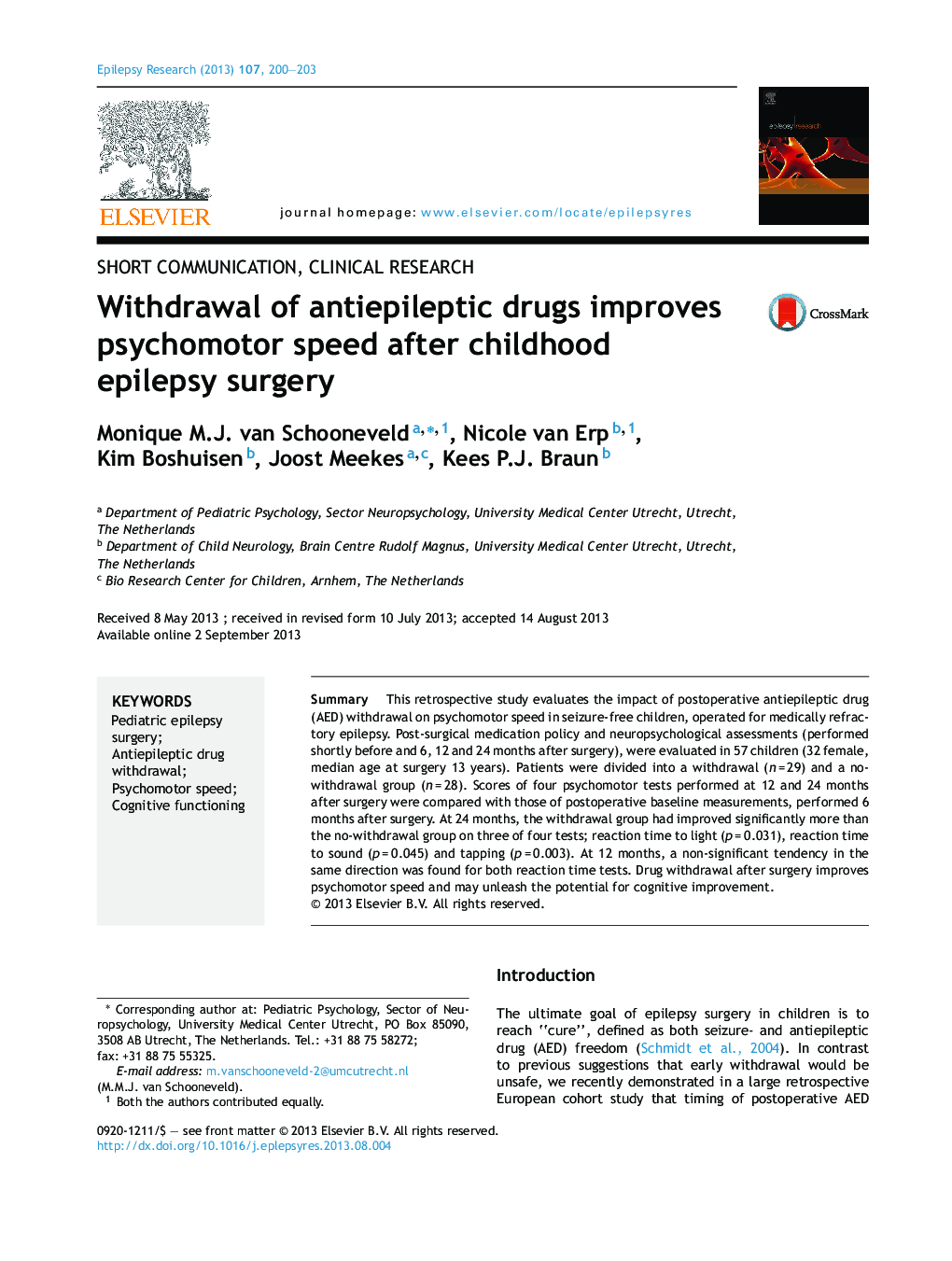| Article ID | Journal | Published Year | Pages | File Type |
|---|---|---|---|---|
| 6015877 | Epilepsy Research | 2013 | 4 Pages |
â¢In children AED withdrawal after epilepsy surgery is favorable with regard to psychomotor speed.â¢Seizure free children who discontinued at least one AED improved on several psychomotor speed tests.â¢Operated seizure free children who remained on medication did not improve on psychomotor speed tests.â¢AED withdrawal has early beneficial effects on cognitive functioning.
SummaryThis retrospective study evaluates the impact of postoperative antiepileptic drug (AED) withdrawal on psychomotor speed in seizure-free children, operated for medically refractory epilepsy. Post-surgical medication policy and neuropsychological assessments (performed shortly before and 6, 12 and 24 months after surgery), were evaluated in 57 children (32 female, median age at surgery 13 years). Patients were divided into a withdrawal (n = 29) and a no-withdrawal group (n = 28). Scores of four psychomotor tests performed at 12 and 24 months after surgery were compared with those of postoperative baseline measurements, performed 6 months after surgery. At 24 months, the withdrawal group had improved significantly more than the no-withdrawal group on three of four tests; reaction time to light (p = 0.031), reaction time to sound (p = 0.045) and tapping (p = 0.003). At 12 months, a non-significant tendency in the same direction was found for both reaction time tests. Drug withdrawal after surgery improves psychomotor speed and may unleash the potential for cognitive improvement.
